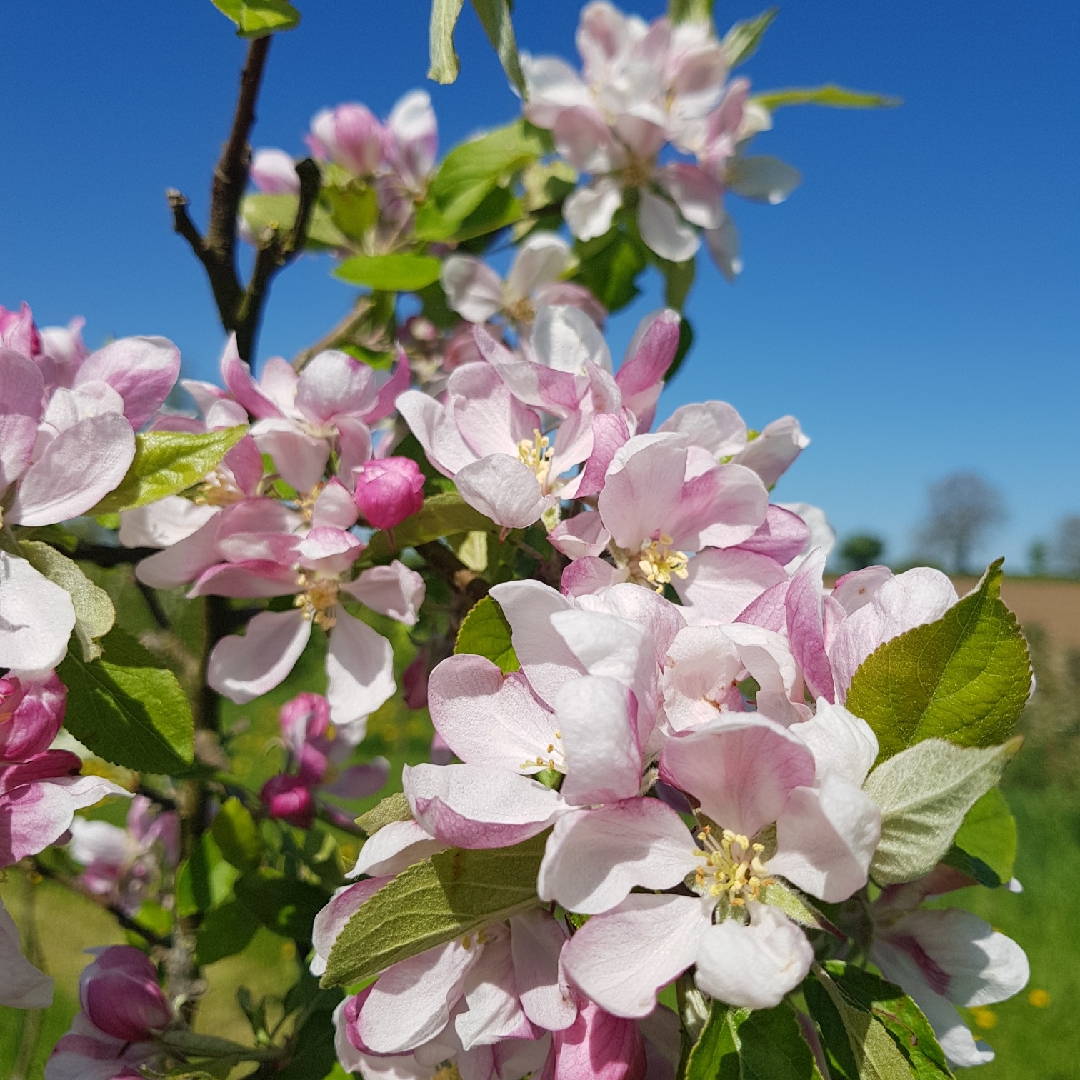
Malus domestica 'Red Falstaff'
Apple 'Red Falstaff'
There are many types, varieties and growth forms of apple trees, from standard tree to dwarf, the mature size being controlled by the root stock used during grafting. The cultivation is the same for all types and varieties; only the pruning is different, One of the best ways to choose a variety of apple tree to grow is to see what varieties do well in your locality. Be aware that most apple trees need pollinators in order to fruit. Some varieties need one other tree as a pollinator, and some need two, or even three. If you have apple trees in neighbouring gardens this should help, as long as they flower at the same time.
Contributed by @michelleh
-
Full sun to partial shade
-
Occasional watering
-
Full Frost Hardy: 5F (-15°C)
-
Rich and free draining
Common name
Apple 'Red Falstaff'
Latin name
Malus domestica 'Red Falstaff'
type
Fruiting tree
family
Rosaceae
ph
5.0 - 6.8 Acid - Neutral
Plant & bloom calendar
-
Best time to plant
-
When the plant will bloom
-
When to harvest
full grown dimensions
 5.50 M
6.00 M
5.50 M
6.00 M
Malus domestica 'Red Falstaff'
There are many types, varieties and growth forms of apple trees, from standard tree to dwarf, the mature size being controlled by the root stock used during grafting. The cultivation is the same for all types and varieties; only the pruning is different, One of the best ways to choose a variety of apple tree to grow is to see what varieties do well in your locality. Be aware that most apple trees need pollinators in order to fruit. Some varieties need one other tree as a pollinator, and some need two, or even three. If you have apple trees in neighbouring gardens this should help, as long as they flower at the same time.
Planting outdoors
From Mid Autumn TO Early Spring
When planting remove the weeds from surrounding areas and make sure the hole you dig is at least twice the size of the roots. It is advised not to add fertiliser at this time due to the possibility of damaging the tree, however well rotted compost or manure should be forked into the bottom, the tree placed in the hole and back filled, firmed then watered in thoroughly. Keep well-watered until the tree is well established.
Apple Tree Blooms
From Mid Spring TO Late Spring
Once the weather has warmed up the tree will produce the first green leaves which will then prompt the first blossom. This is a very vulnerable stage - if a frost occurs the blossom is usually killed, and then there will be no fruit. .









